María Castro Domínguez's Blog, page 6
July 7, 2015
"Thursday" by Lorraine Mariner
"Thursday" is written by , Lorraine Mariner. It has been shortlisted for the Forward Poetry Prize and was originally published in The Rialto magazine. (Incidently The Rialto has some of the best poetry written today).
In her poem "Thursday" the momentum is rich, right there until the end. A poetry movie, where the normal and unusual anithetically bang against each other producing quite an extraordinary effect.
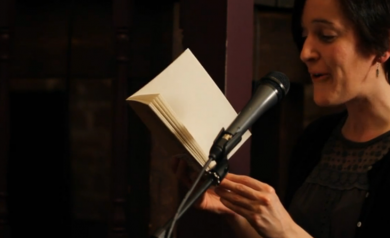 ThursdayI'm trying to get to work earlier and make
ThursdayI'm trying to get to work earlier and makethe short walk from Fenchurch Street Station
to the tube at Tower Hill where a guard
is pulling across the gate and commuters
are being evacuated through the gap
and he says it might be closed for ten minutes
half an hour and I think typical walk back
the way I came and on towards Monument
where it's closed again and this guard says
power failure so I walk towards Bank posting
a birthday card to my sister's boyfriend and at
the entrance to Bank it's the same so I phone
my mum who I know will have the radio on
but she says there's nothing on the travel news
you should get a bus to Victoria so I locate
a bus going to Victoria and follow it
to the bus stop and join the crowd that's formed
to wait for the next one and finally it comes
but it's jammed and I watch with admiration
as people with more balls than I'll ever have
leap on through the exit doors until the driver
gets wise and shuts them so I go and find
another bus stop and settle for a bus to Waterloo
with a seat and tell myself I'm not late yet
I'm getting a different view of the city and then
I hear the man behind say explosion and coming
down the stairs a text arrives from my friend
at work asking if I'm ok and so I phone her
and tell her I'm fine and ask her which is the best
bus to catch to Pimlico and then I try my mum
but now she's engaged and I'm standing opposite
the Shell building where my grandma worked
hoping for a 507 and my mum rings and says
it's bad but all my family members are safe
in their offices and I'm not to get on any more
buses so I start walking through the sirens
aiming for the building where my desk is waiting
exactly the way I left it yesterday evening.
Lorraine Mariner
Published on July 07, 2015 09:15
July 4, 2015
PD James
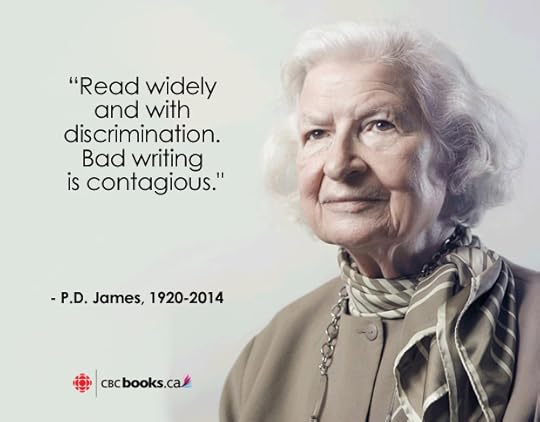 Just finished reading a PD James novel and find her
policeman poet
Adam Dalgliesh quite charismatic and intriguing.Everything in her book is so accurate, I think I´ll be grabbing a few more.Here´s a very good interview I strongly recommend, (good for writers in particular), in The Guardian.
Just finished reading a PD James novel and find her
policeman poet
Adam Dalgliesh quite charismatic and intriguing.Everything in her book is so accurate, I think I´ll be grabbing a few more.Here´s a very good interview I strongly recommend, (good for writers in particular), in The Guardian.
Here´s the beginning:
As a crime writer, surprise is PD James's forte. Her ability to keep readers guessing has not failed her in half a century. And it is characteristic that, towards the end of her writing life, she should elect to spring a new surprise on us. It would have been pardonable – admirable indeed – to have published another novel starring policeman poet Adam Dalgliesh. But Death Comes to Pemberley (now out in paperback) is a plucky new adventure, a sequel to Jane Austen's Pride and Prejudice that doubles as a murder novel.PD James has been an Austen devotee all her life. She can hear Austen's voice with her inner ear, become her echo on the page. Death Comes to Pemberley is a masterly pastiche. It is more streamlined than her other fiction, involving only one murder and one suspect, but it fills us in on Elizabeth and Darcy and their marriage and satisfies that curiosity one has as the reader of a classic romance: did they live happily everafter?......................................That magnificent narrative grip, the Victorian and the visceral together......
Published on July 04, 2015 11:58
July 2, 2015
In a Jackson Pollock mood
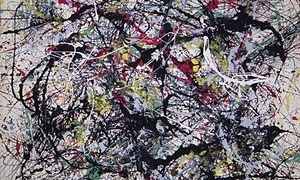 Jackson Pollock, Liverpool
Jackson Pollock, LiverpoolJackson Pollock was an American painter, and is possibly the leading force behind the abstract expressionist movement in the art world.When the superstar abstract expressionist Jackson “Jack the Dripper” Pollock shifted to using more recognisable figurative pictures in the early 1950s, many thought it constituted a cop-out lack of nerve, perhaps occasioned by too much fame and too much well-lubricated fun. At last, this exhibition – the first in over three decades to survey his late paintings – puts the record straight. Ultimately, Pollock was too much of a wild card to pay much heed to the restrictive gameplan of the abstract art arbiters of the day, critics Greenberg and Rosenberg. A rebel to the last, he wrested his trademark action painting from art-historical acceptance and revivified it with autobiographical figurative elements – see Number 5 from 1952 and 1953’s magisterial Portrait And A Dream, in which Pollock tears his psyche apart. These raw images touch a nerve: they are radiant, and certainly worth another look.
Published on July 02, 2015 04:19
June 29, 2015
Unterwegs Visual poem by Pablo Valcárcel
Start the week with a poetry glare I´ve rescued "Unterwegs" by Pablo Valcárcel. Adressed to all those who love. Especially yourselves..
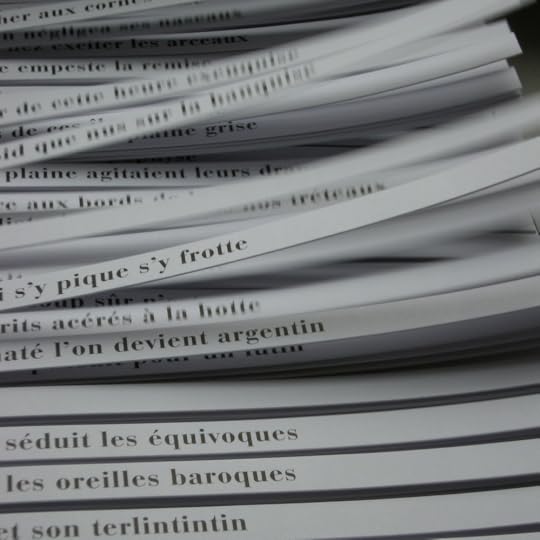
Here are two rules about how to write a love poem by Andrew Motion:1 Speak from your heart. Poets have in their toolbox every trick of rhetoric and linguistic structuring - from alliteration to zeugma. The toolbox is there to be ransacked, but the strength of your feelings might be diverted if you get too tied up with technical stuff.2 Simply to say “I love you” or “you’re beautiful” is not interesting. Remember William Carlos Williams’ advice about writing - there is no truth but in things. So be particular. Things have a fascination that abstractions don’t. A reader will be more likely to identify with your poem if there are references to personal situations or particular features - be it their body, attitude or behaviour.Hey, for all those that follow me, you have the answer to my previous blog entry in rule two.

Here are two rules about how to write a love poem by Andrew Motion:1 Speak from your heart. Poets have in their toolbox every trick of rhetoric and linguistic structuring - from alliteration to zeugma. The toolbox is there to be ransacked, but the strength of your feelings might be diverted if you get too tied up with technical stuff.2 Simply to say “I love you” or “you’re beautiful” is not interesting. Remember William Carlos Williams’ advice about writing - there is no truth but in things. So be particular. Things have a fascination that abstractions don’t. A reader will be more likely to identify with your poem if there are references to personal situations or particular features - be it their body, attitude or behaviour.Hey, for all those that follow me, you have the answer to my previous blog entry in rule two.
Published on June 29, 2015 01:58
June 25, 2015
Guess who?
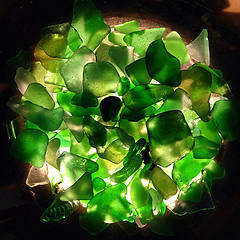 Any idea who could have written this poem? It includes a clue word.
Any idea who could have written this poem? It includes a clue word. Between Walls
the back wings
of the
hospital where
nothing
will grow lie
cinders
in which shine
the broken
pieces of a green
bottle
Published on June 25, 2015 06:01
June 23, 2015
A Defence of Poetry for lovers of poetry.

A Defence of Poetry
Les Murray, one of my favourite poets, read the following poem in a lecture in 1998 for the Poetry International Festival in Rotterdam.I will first add an extract from his lecture which I´m sure a lot of poets, or even anyone creating, can relate to.
"..........Looking inside myself, I detect that when I write a poem, I do so in a kind of trance which integrates my two minds with each other and with their master-servant my body. The impulse to write the poem may come from any of the three, and each makes its contribution to the trance of composing. Waking consciousness supplies words, most ideas and probably much of the poem’s design. Dream lends it its aspect of timelessness, and its aura of mystery and the supernal; I suspect that many of the more daring flights and connections of any poem, the ones the mind might resist were it not charmed to silence, are carried on the flying carpet of our dream-life! The body, in turn, supplies feeling and rhythm, the free-and-bound dance of the words and images and it also supplies the laws of breath which shall obtain in the work. A man with a deep barrel chest will, at least sometimes, write very long lines because he has the puff for it. All of these contributions fuse in a dazzling simultaneity, if one has come to the poem at the proper moment in its growth within oneself. Start writing it too early in its gestation, and it is liable to be a mess, confused and uncooked; too late and it may emerge overly cut-and-dried, like a programme.
The trance of integration in which a poem is written lasts for a while in me, a few hours or days, and may take several more days to fade away. During this time, I can polish the poem, modify it as may be necessary, and partly judge its quality. Only when the trance is fully past and gone can I finally judge it, though sometimes the personal experience of integration may prove to have been better than its fruits. Carl Jung and many before him would call the integrative experience my soul, but not wanting to claim too much or depend on a word worn smooth with use, I prefer to call it my poem-self. .............."
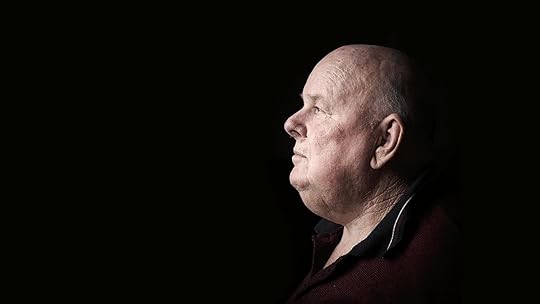
The Instrument
Who reads poetry? Not our intellectuals:
they want to control it. Not lovers, not the combative,nor examinees. They too skim it for bouquets
and magic trump cards. Not poor schoolkids
furtively farting as they get immunized against it.
Poetry is read by the lovers of poetry
and heard by some more they coax to the cafe
or the district library for a bifocal reading.
Lovers of poetry may total a million people
on the whole planet. Fewer than the players of skat.
What gives them delight is a never-murderous skim
distilled, to verse mainly, and suspended in rapt
calm on the surface of paper. The rest of poetry
to which this was once integral still rules
the continents, as it always did. But on condition now
that its true name is never spoken. This, feral poetry,
the opposite but also the secret of the rational,
who reads that? Ah, the lovers, the schoolkids,
debaters, generals, crime-lords, everybody reads it:
Porsche, lift-off, Gaia, Cool, patriarchy.
Among the feral stanzas are many that demand your flesh
to embody themselves. Only completed art
free of obedience to its time can pirouette you
through and athwart the larger poems you are in.
Being outside all poetry is an unreachable void.
Why write poetry? For the weird unemployment.
For the painless headaches, that must be tapped to strike
down along your writing arm at the accumulated moment.
For the adjustments after, aligning facets in a verb
before the trance leaves you. For working always beyond
your own intelligence. For not needing to rise
and betray the poor to do it. For a non-devouring fame.
Little in politics resembles it: perhaps
the Australian colonists’ re-inventing of the snide
far-adopted secret ballot, in which deflation could hide
and, as a welfare bringer, shame the mass-grave Revolutions,
so axe-edged, so lictor-y.
Was that moral cowardice’s one shining world victory?
Breathing in dream-rhythm when awake and far from bed
evinces the gift. Being tragic with a book on your head.
[Conscious and Verbal, 1999]
Published on June 23, 2015 06:02
May 8, 2015
JH Prynne is the ultimate poet
JH Prynne a poet that has to be read. Everything about him spells distance and difficulty. He does not give poetry readings; he does not appear in anthologies and is never nominated for prizes; his books have Captain Beefheart-like titles such as Her Weasels Wild Returning andStreak~~~Willing~~~Entourage~~~Artesian; he attracts acolytes and execrators, rather than run-of-the-mill readers, and, most important, no one knows what any of it means. [image error] Such are the familiar assumptions where this poet is concerned. Passions run deep: when The Oxford English Literary History had the temerity to suggest that Prynne was more deserving of notice than Larkin, the brouhaha ended up on the Today programme. ...................
[image error] In Kitchen Poems , Prynne took up, at the level of the name, the relations between language and the real. Expanding and enriching the significance of this inquiry was the practice and theory of Olson and the projectivists. It is into the gap that opens between the name and what is named, between sign and referent, that deception and trickery penetrate. Names can return us to things, to the world of which they are themselves a part, only insofar as we are prepared to trust to the very trickery that has deceived us and to recognize in the absence, the lack, of language an unveiling, a bringing into presence. In the language of poetry speaks that which speaks nowhere else. Poetry is a calling by name of that by which poetry is spoken. Prynne writes, in “Sketch for a Financial Theory of the Self”: “the names,/do you not/see, are just/the tricks we/trust, which/we choose.”
Published on May 08, 2015 03:27
May 4, 2015
3 poems by María Castro Domínguez in Black Mirror Magazine
Pomona by Maria Castro Dominguez in Black Mirror Magazine. You can read three of my poems now.Here´s a taster.
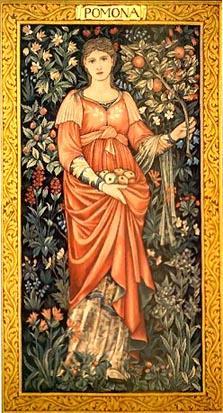 Pomona
Pomona
fruit market stallsjumbled faces feasting galorechildren swimming bypomegranatesmangoes dozing orangeamidst papaya pancakesenvious bananas waiting for their timepeaches round and sweetripened ovaries of a flowering plant............
 Pomona
Pomona fruit market stallsjumbled faces feasting galorechildren swimming bypomegranatesmangoes dozing orangeamidst papaya pancakesenvious bananas waiting for their timepeaches round and sweetripened ovaries of a flowering plant............
Published on May 04, 2015 05:15
April 22, 2015
What a beauty! A poem by Ángel González, "Ayer"
Just gets me back into the right mood this incredible poem. So simple yet full of images, emotions and movement.I might even dare to translate it!
 ÁNGEL GONZÁLEZ
ÁNGEL GONZÁLEZAYER
Ayer fue miércoles toda la mañana.Por la tarde cambió:se puso casi lunes,la tristeza invadió los corazonesy hubo un claromovimiento de pánico hacia lostranvíasque llevan los bañistas hasta el río.
A eso de las siete cruzó el cielouna lenta avioneta, y ni los niñosla miraron. Se desatóel frío,alguien salió a la calle con sombrero,ayer, y todo el díafue igual,ya veis,qué divertido.ayer y siempre ayer y así hasta ahora,continuamente andando por las callesgente desconocida,o bien dentro de casa merendandopan y café con leche, ¡quéalegría!
La noche vino pronto y se encendieronamarillos y cálidos faroles,y nadie pudoimpedir que al final amanecieseel día de hoy,tan parecidopero¡tan diferente en luces y en aroma!
Por eso mismo,porque es como os digo,dejadme que os hablede ayer, una vez másde ayer: el díaincomparable que ya nadie nuncavolverá a ver jamás sobre la tierra.
Ángel González Muñiz (September 6, 1925 – January 12, 2008) was a major Spanish poet of the twentieth century.González was born in Oviedo. He took a law degree at the University of Oviedo and, in 1950, moved to Madrid to work in Civil Administration. It was in Madrid that he first began to write and publish his poetry, becoming friends with many of the leading Spanish writers who encouraged his work. His first book of poems, Áspero mundo("Harsh World"), was an immediate critical success. His second book, Grado elemental ("Elementary Grade"), was published in Paris and won the prestigious Antonio Machado Prize for Poetry. He published eight more books of poetry and edited several anthologies and books of literary criticism, including critical editions on the poetry ofJuan Ramón Jiménez and Antonio Machado. Two books have appeared in English translation: Harsh World and Other Poems (Princeton University Press, 1977, translated by Donald Walsh) and Astonishing World: The Selected Poems of Ángel González (Milkweed Editions, 1993, translated by Steven Ford Brown).
Published on April 22, 2015 11:40
April 19, 2015
A poet to look out for. John Glenday.
 Landscape with Flying Man by John Glenday
Landscape with Flying Man by John Glenday I read about him that was given wings.
His father fixed those wings to carry him away.
They carried him halfway home, and then he fell.
And he fell not because he flew
but because he loved it so. You see
it's neither pride, nor gravity but love
that pulls us back down to the world.
Love furnishes the wings, and that same love
will watch over us as we drown.
The soul makes a thousand crossings, the heart, just one.
John Glenday is a poet who combines the everyday and the transcendent. His first collection, The Apple Ghost, won a Scottish Arts Council Book Award and his second, Undark, was a Poetry Book Society Recommendation. His ambition to be a poet was first fired in his teens. ‘A lot of people do [want to be poets in adolescence], but I never grew out of it…. Every job I've had is really something I've had to keep me while I'm writing.’ He studied English at the University of Edinburgh, and after graduating became a psychiatric nurse. Currently he lives in Drumnadrochit and works for NHS Highland as an addictions counsellor.
Published on April 19, 2015 08:52



